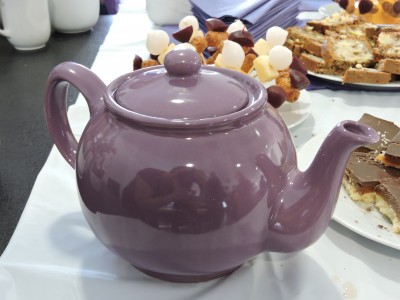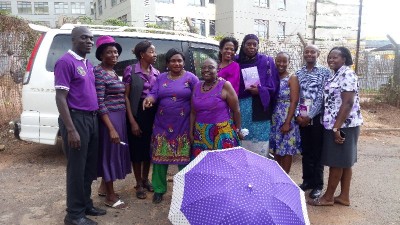
Take A Deep Breath
![]() Cairdeas
Cairdeas
![]() 29th August 2018
29th August 2018
A few weeks on, and it is time to reflect on Cairdeas and the Makerere & Mulago Palliative Care Unit’s (MMPCU) 10thanniversary conference, ‘Building Momentum for Palliative Care’.
Dr Mhoira Leng opened the conference (day one, 9thAugust 2018), setting the scene by reflecting on the Lancet Commission Global Access to Palliative Care and Pain Relief. Dr Mhoira’s work, and that of her partners, directly responds to the crisis the Lancet Commission have highlighted: that at least 80% of those experiencing serious health-related suffering (SHS), live in low and middle-income countries where access to basic palliative care and pain relief is severely lacking or unavailable.
Professor Scott Murray, from the University of Edinburgh, was optimistic in his address; particularly in relation to what was being achieved in Uganda, saying: “Inspiration is like a deep breath and we should take a deep breath and prepare ourselves to show how Uganda is leading the way in palliative care.” He recognised Cairdeas and MMPCU’s engagement in a multitude of activities such as research and the development of resources to support the delivery of the palliative care approach.
Palliative care as a basic human right was the subject of Dr Henry Ddungu’s input to the conference. Dr. Ddungu spoke of the individual’s right to dignity, and how freedom from pain and access to sufficient and efficient pain medication is a basic human right.
The panel discussions that followed these inputs spoke of how partners are pursuing the highest standards of palliative care, aligning with best practice and, always, putting quality patient care at the centre of every piece of work.
The keynote address for the day - ‘Inspiring Hope’ - was delivered by guest of honour, Professor MR Rajagopal, who himself is the embodiment of hope. “I believe that there will be more good in this room today than in most parts of the world,”he said in his opening remarks. He presented a ‘new normal’ for modern healthcare; one that goes beyond treating disease, one that tends to the physical, social and mental wellbeing of our community. He spoke about those on the margins; neglected populations such as women, LGBT, those with difficult to treat diseases, and those with mental ill-health. He spoke of the challenge and the responsibility to treat without discrimination, to afford everyone the same high quality healthcare.
A representative for Uganda’s Minister of Health, as part of a panel discussion, congratulated Cairdeas and MMPCU on the exceptional quality and impact of their work, and re-emphasised the Ministry’s commitment to work towards becoming a world leader in palliative care.
The afternoon session on education and training saw wide-ranging inputs from healthcare professionals presenting first hand case studies and research findings. Professor Julia Downing, from MMPCU and the ICPCN (International Children’s Palliative Care Network) emphasised the pivotal role of nurses in palliative care and she described positive impacts of a capacity building / nurse training programme which started in 2015, funded by the Tropical Health Education Trust. Nurse, doctor and student inputs all followed: Elizabeth Nabirye presented evaluation findings of a nurse-prescribing programme for morphine; Professor Harriet Mayanja looked back on the journey of palliative care training and degrees in Makerere University; and Dr Bogere Najib described the experiences and challenges of practicing palliative care as a resident.
An account of the Master of Medicine (MMed) training programme in Rwanda was given by Dr Jean Pierre Siboma. This is one of the many partnerships that Cairdeas and MMPCU have developed globally, in order to develop capacity, learning and growth outside of Uganda. This led onto Dr Margaret Tumwebase presenting an evaluation on the potential of e-learning for palliative care and described the array of tools available for e-learning.
Messages of support for the conference were received from around the world:
“Congratulations and continue the important clinical and capacity-building work you are doing! You inspired me to pursue a career in competent cross-cultural palliative care and I’m extremely grateful!” Dr Danny Low, USA
“Greetings to all my friends and a happy 10th anniversary! Congratulations on all your achievements over the years,which have transformed the lives for so many. What a privilege it has been to be part of such an amazing team and continue those relationships across countries. Look forward to future collaborations.” Dr Gurs Purewal, UK
NOTE: all of the presentations made at the conference will be available on the resources section of the Cairdeas website https://cairdeas.org.uk/resources
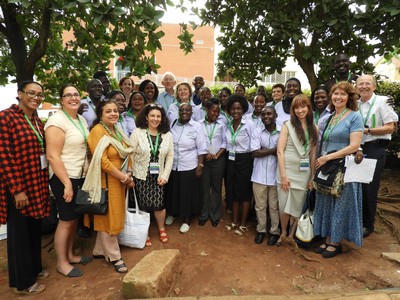
Faculty gather for the conference
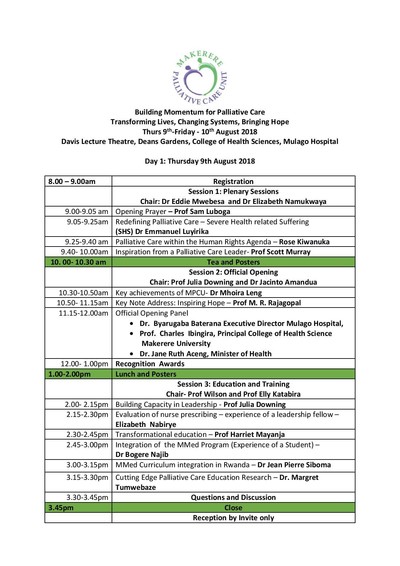
Day one conference running order
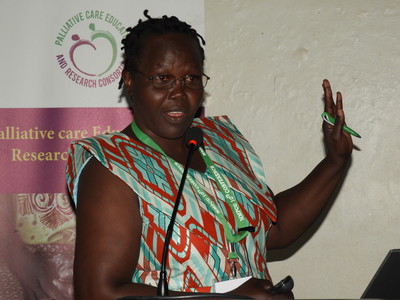
Vicky Opia inspiring us from Adjumani
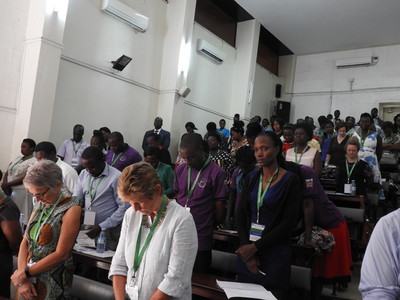
Moment of prayer
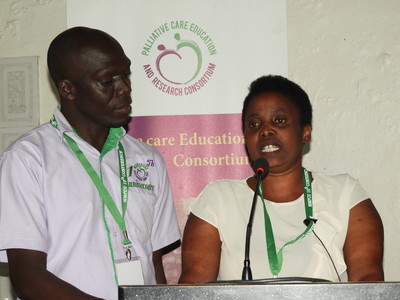
Helen, patient's relative shares her experience
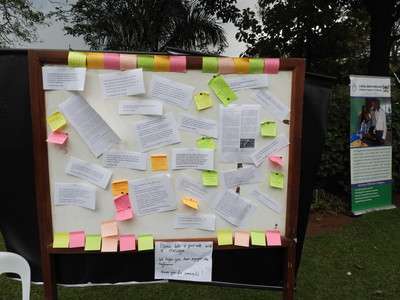
Messages of encouragement from across the world
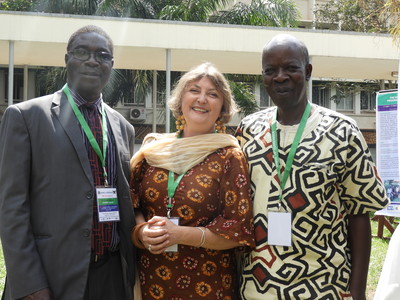
Ministry of Health essential support; Drs Amone and Amandua
Conference Marks Decade of Successful Collaboration
Cairdeas
![]() 5th August 2018
5th August 2018
This week, on the 9thand 10thof August, Cairdeas will formally celebrate 10 years of partnership working with the Makerere & Mulago Palliative Care Unit (MMPCU). The decade of achievement will be marked by a conference in Makerere University drawing together an international panel to speak on the theme of: ‘Building Momentum for Palliative Care’.
From Scotland, India, Sudan, Rwanda, USA and Uganda, delegates will speak on policy, practice and research, showcasing the cutting-edge, evidence-based palliative care practice that has been making an impact in Uganda and elsewhere. The conference is honoured that Uganda’s Minister of Health will be represented.
Mhoira Leng, Medical Director of Cairdeas and Head of Palliative Care for the Mulago and Makerere Palliative Care Unit, said, “I am humbled to be part of a movement for palliative care in Uganda which began 25 years ago. I am also filled with hope as I witness those working alongside me, nationally and globally. We all have a common goal, that of seeking an end to needless suffering through ensuring the choices and needs of those living with chronic illness are respected and met within the context of Universal Health Coverage and palliative care for all.”
The voices of patients, their families, and volunteers will also be heard at the conference as those affected will explain, first hand, how values-based, person centred care has had a profound impact on their lives. Themes such as palliative care and mental health, palliative care and refugees, and palliative care and the elderly will all be explored. Cairdeas’ Christian ethos will, of course, be in evidence at the conference with an input on, ‘spiritual narratives within palliative care’.
The strap line for the conference, ‘transforming lives, changing systems, bringing hope’encapsulates the work, ethos and dynamism of Cairdeas whose positive achievements have been further strengthened through local partnerships. Specifically in this instance, Cairdeas’ partnership with MMPCU is testament to the adage, 'together we are stronger’; for together they have notched up some remarkable achievements: a centre of excellence for integrated Palliative Care services in Mulago National Referral Hospital; pre-service and in-service training of health professionals; and clinical modelling supported by clinical protocols and evidence based medicine.
Also during the conference, MMPCU will launch its five-year Strategic Plan in partnership with the Palliative care Education and Research Consortium; the overarching goal to provide quality palliative care for all in Uganda and beyond. The plan is underpinned by five strategic areas - clinical service provision, education and training, advocacy, research, and sustainability - each of which will considered and discussed over the two-day conference.
Places are still available. For further details please contact:
email enquiries: mpcuconf2018@gmail.com
telephone enquiries:+256 (0)754 299919
Venue: Davis Lecture Theatre, Deans Gardens, College of Health Sciences, Mulago Hospital, Uganda.
Purple Parties… Stuck for ideas?
![]() Cairdeas
Cairdeas
![]() 16th May 2018
16th May 2018
June 2018 sees the launch of our annual Purple Party campaign! More details will be shared very soon, but this is where we encourage our friends and supporters to host a ‘Purple Party’ in order to raise awareness and raise more friends in global palliative care. However for those of you with culinary brain freeze, it might be daunting to think what to serve at a purple party, so here we’ve prepared some suggestions to get you thinking! Of course, other recipes are available… And most importantly we don’t want anyone feeling put off by the cooking, the most important thing is getting people together regardless of the colour of the food!
Make it fancy…
For anyone feeling adventurous, why not try a purple layer cake, or a purple forest cake… Or how about attempt a purple twist on the classic red velvet cake?
https://www.tablespoon.com/recipes/purple-rific-layer-cake/5d140447-a74f-4b60-974a-df8805893308
https://www.bbc.com/food/recipes/purple_forest_cake_90366
https://www.bbcgoodfood.com/recipes/purple-velvet-cupcakes-blackberry-frosting
Make it healthy…
As a healthcare charity, it would be remiss of us not to advise healthy eating! Fortunately there are numerous delicious fruits which fit the purple bill… so how about putting together a fruit bowel of grapes, plums, blackberries and blueberries?
Make it natural…
Vegetables in baking are perhaps more common than you think! The classic carrot cake has been joined by parsnip cake and most relevant for our purple parties, beetroot! Not only will you have a guaranteed moist and succulent delicacy, but also a great natural purple colouring! Alongside blueberries and blackberries, below are a few ideas for naturally purple confectionary!
https://www.telegraph.co.uk/foodanddrink/recipes/9555948/Chocolate-and-beetroot-cake-recipe.html
http://www.foodtolove.com.au/recipes/flourless-chocolate-beetroot-cake-25968
http://www.womanandhome.com/recipes/beetroot-cake-with-orange-frosting-recipe/
http://www.womanandhome.com/recipes/beetroot-cake-with-orange-frosting-recipe/
https://therecipecritic.com/blueberry-lemon-pound-cake/
https://www.howsweeteats.com/2015/05/blueberry-breakfast-cookies/
Make it simple…
Of course, you might feel more comfortable sticking with your own tried and trusted recipe… so you could always just add a splash of purple colouring to your mixture or icing for a quick and easy result. Or even simpler, if you aren’t even a baker then you could just put out some purple chocolates (there are many out there) or shop bought goodies…
Make it inedible!
Finally you don’t have to eat purple to make your party purple. Beyond asking your guests to come dressed in purple, you could just accessorise your event with purple cupcake cases, purple napkins or even just a vase of purple flowers!
